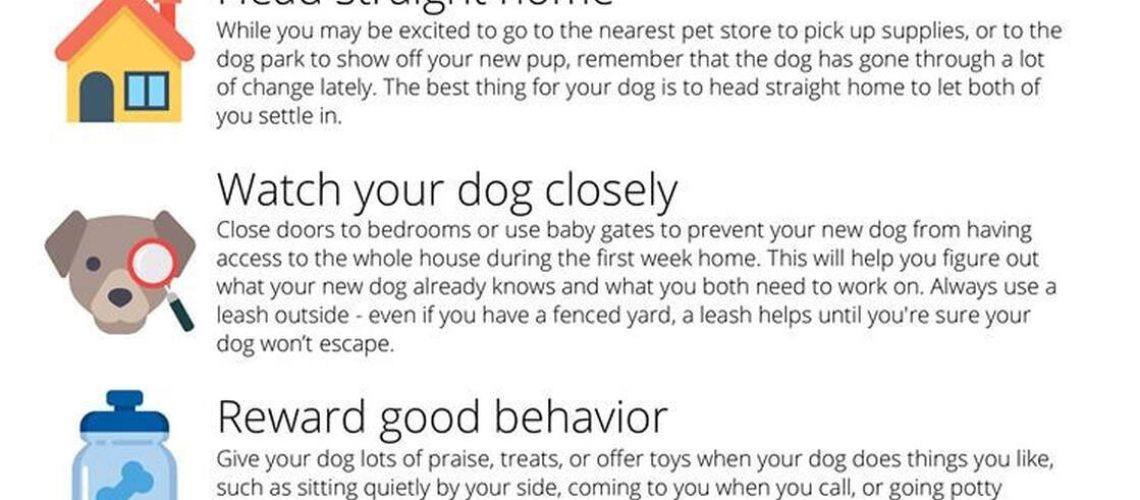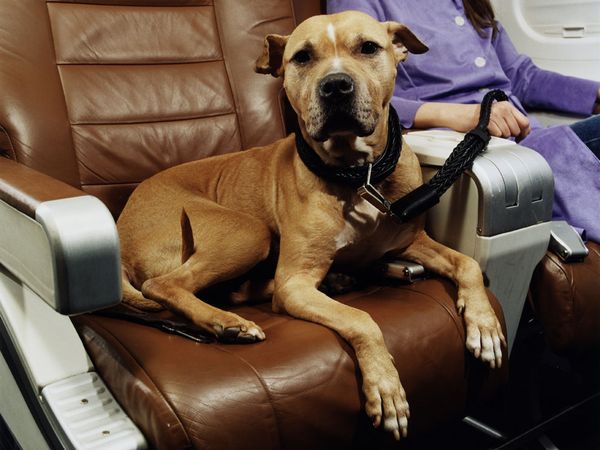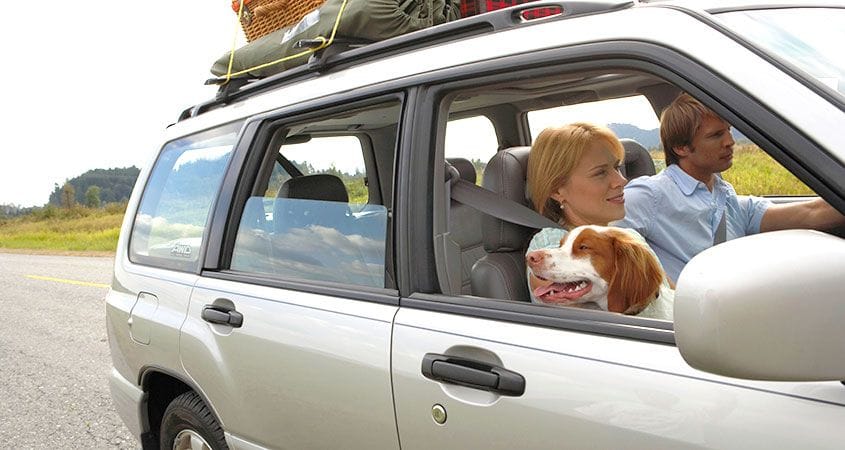If you're a first-time dog owner, we've got you covered! In this article, we'll provide you with valuable tips and advice to ensure a smooth and enjoyable experience as you embark on your journey of owning a dog for the first time.
Key Takeaways:
- Research and choose the right breed for your lifestyle and living situation.
- Establish a routine for feeding, exercise, and bathroom breaks to keep your dog happy and healthy.
- Invest time in training your dog to ensure good behavior and obedience.
- Create a safe and comfortable environment for your dog with proper bedding, toys, and designated areas.
- Regularly visit the veterinarian for vaccinations, check-ups, and preventive care to maintain your dog's health.
Important Considerations for First-Time Dog Owners
When becoming a first-time dog owner, there are several important things to consider. One of the most crucial factors is the amount of time and commitment required to properly care for a dog. Dogs need daily exercise, feeding, grooming, and attention. It's essential to be prepared to devote enough time and energy to meet these needs.
Another consideration is the cost of owning a dog. Dogs require regular veterinary check-ups, vaccinations, and preventive medications. They also need food, toys, bedding, and other supplies. It's important to budget for these expenses and ensure you can provide for your new furry friend.
Additionally, it's important to think about your living situation when getting a dog. Some breeds require more space and exercise than others. If you live in an apartment or have a small yard, you may need to choose a smaller or less active breed that will be comfortable in your home.
Researching Dog Breeds
Before choosing a dog breed or size that suits your family, it's essential to do some research. Different breeds have different temperaments and activity levels. Some breeds are better suited for families with children while others are more suitable for individuals or couples.
You should also consider the size of the dog you want. Smaller dogs are generally easier to handle and require less space but may still have high energy levels. Larger dogs may need more exercise and space but can also be great companions.
List of Small Dog Breeds:
- Pomeranian
- Chihuahua
- Pug
- Dachshund
- Boston Terrier
List of Large Dog Breeds:
- Labrador Retriever
- Golden Retriever
- German Shepherd
- Rottweiler
- Bernese Mountain Dog
Taking the time to research different breeds and sizes will help you find a dog that fits well with your family and lifestyle.
Choosing the Right Breed or Size of Dog for Your Family
When choosing a dog breed or size for your family, it's important to consider various factors such as your lifestyle, living situation, and the needs of your family members. Some breeds are known for being more active and require plenty of exercise, while others are more laid-back and better suited for apartment living. Additionally, you'll want to think about the size of the dog and how it will fit into your home.
Lifestyle Considerations
If you lead an active lifestyle with lots of outdoor activities, a high-energy breed like a Labrador Retriever or Border Collie may be a good fit. On the other hand, if you prefer quieter activities at home, a smaller breed like a Cavalier King Charles Spaniel or Bichon Frise might be more suitable.
Living Situation
If you live in an apartment or have limited outdoor space, it's important to choose a dog that doesn't require excessive exercise. Small to medium-sized breeds like French Bulldogs or Shih Tzus can adapt well to apartment living. However, if you have a large yard or live in a rural area with access to open spaces, larger breeds like Golden Retrievers or German Shepherds may be better suited.
Essential Supplies Every First-Time Dog Owner Needs
As a first-time dog owner, there are several essential supplies that you'll need to ensure the comfort and well-being of your new pet. These supplies will help you provide a safe and nurturing environment for your furry friend.
Basics:
- Dog food: Choose high-quality dog food appropriate for your dog's age and size.
- Water and food bowls: Opt for stainless steel or ceramic bowls that are easy to clean.
- Collar and leash: Essential for walks and identification purposes.
- Dog bed or crate: Provide a comfortable space for your dog to rest and sleep.
Grooming Supplies:
- Brush and comb: Regular grooming helps maintain your dog's coat health.
- Nail clippers: Keep your dog's nails trimmed to prevent discomfort or injury.
- Toothbrush and toothpaste: Maintain good oral hygiene for your dog's dental health.
- Shampoo and conditioner: Choose products specifically formulated for dogs.
Finding the Right Walking Schedule for Your New Dog
Establishing a regular walking schedule is crucial for the physical and mental well-being of your new dog. The right walking schedule will depend on factors such as the age, breed, and energy level of your dog. It's important to find a balance that provides enough exercise without overexertion.
Considerations:
If you have a high-energy breed like a Border Collie or Australian Shepherd, they may require longer walks or more frequent exercise sessions. On the other hand, smaller breeds like Chihuahuas or Pomeranians may have shorter bursts of energy but still need daily walks. Additionally, puppies generally have shorter attention spans and may need multiple short walks throughout the day.
The Importance of Establishing a Routine for Feeding and Potty Breaks
Establishing a routine for feeding and potty breaks is essential in ensuring your new dog's health, comfort, and proper house training. Dogs thrive on consistency, so having set times for meals and potty breaks will help them adjust to their new environment.
Feeding Routine:
Determine the appropriate amount of food for your dog's age, size, and activity level. Divide the daily portion into two or three meals and feed at consistent times each day. This helps regulate digestion and prevents overeating.
Potty Break Routine:
Take your dog outside to eliminate first thing in the morning, after meals, before bedtime, and at regular intervals throughout the day. Use positive reinforcement when they go in the designated area to encourage proper house training.
Key Health Care Needs for First-Time Dog Owners to Know
As a first-time dog owner, it's important to be aware of your new pet's health care needs. Regular veterinary check-ups, vaccinations, and preventive care are vital for keeping your dog healthy and happy.
Veterinary Check-ups:
Schedule regular visits with a veterinarian to ensure your dog receives necessary vaccinations, parasite prevention treatments, and overall health assessments. Your vet can also provide guidance on nutrition, dental care, and any specific health concerns related to your dog's breed.
Vaccinations:
Ensure your dog is up-to-date on core vaccinations such as rabies, distemper, parvovirus, and adenovirus. Depending on your location and lifestyle factors like travel or exposure to other dogs, additional vaccines may be recommended by your vet.
Training Your New Dog: Basic Commands Made Easy
Training is an essential part of owning a dog. Teaching basic commands not only helps establish a bond between you and your new pet but also ensures their safety and well-being in various situations.
Start with the Basics:
Begin with simple commands like "sit," "stay," and "come." Use positive reinforcement techniques such as treats, praise, and rewards to encourage desired behavior. Consistency and patience are key in training your dog.
Addressing Challenges and Behavior Issues as a First-Time Dog Owner
As a first-time dog owner, you may encounter challenges or behavior issues with your new pet. It's important to address these issues promptly to prevent them from becoming long-term problems.
Common Challenges:
- Potty training accidents: Establish a consistent routine for potty breaks and reinforce positive behavior with rewards.
- Barking: Identify the triggers for excessive barking and use positive reinforcement techniques to redirect their attention.
- Separation anxiety: Gradually introduce your dog to being alone, provide mental stimulation toys, and consider professional help if needed.
Creating a Safe and Comfortable Home Environment for Your New Pet
Making your home safe and comfortable is crucial when bringing a new dog into your family. Taking precautions will prevent accidents, promote relaxation, and ensure your dog feels secure in their new environment.
Safety Measures:
- Secure hazardous items: Keep chemicals, medications, small objects, and electrical cords out of reach.
- Create designated spaces: Set up a cozy bed or crate area where your dog can retreat to when they need some quiet time.
- Remove toxic plants: Some common houseplants can be toxic to dogs if ingested. Research which plants are safe or opt for artificial ones instead.
| Summary: | Being a first-time dog owner can be both exciting and overwhelming. However, with the right tips and guidance, you can ensure a smooth transition into your new role. Remember to prioritize training, establish a routine, provide proper nutrition and healthcare, offer plenty of love and attention, and be patient with your furry friend. By following these tips, you'll create a loving and fulfilling relationship with your new canine companion! | |
| Key Tips: |
|
https://www.youtube.com/watch?v=ryVYu_U-zDM&pp=ygUeVGlwcyBmb3IgRmlyc3QgVGltZSBEb2cgT3duZXJz Is it hard being a first time dog owner?Puppies are undeniably cute, but they require a significant amount of effort. They must undergo extensive socialization and training during their first year to develop into confident and well-behaved adult dogs. Potty training can be particularly difficult, especially for certain breeds. What age dog is best for first time owners?What is the best age for bringing a puppy into your home? This question has different opinions and factors to consider. However, most veterinarians and breeders agree that the ideal age to bring home a puppy is typically between 8 and 10 weeks old. Is it normal to regret getting a dog at first?Feeling overwhelmed is completely normal, especially for those experiencing something for the first time. If you have doubts or are struggling with anxiety, regret, or guilt, it's important to know that these emotions are common and usually fade with time. What is the hardest time owning a dog?Right when you think you've gotten the hang of things, the next challenging phase comes along! This next stage often catches many dog owners by surprise. While the timing may differ for each dog, most puppies enter their "adolescence" phase around 7-10 months, with the peak occurring around 8-9 months according to most owners. This was last updated on July 4, 2022. Are female dogs better for first time owners?In general, female dogs are typically easier to train, housebreak, and form strong bonds with their owners. However, in specific situations, they may require more attention. Aggression can be an issue in any dog, regardless of breed, but it is often more noticeable in males that have not been neutered. Where should dog sleep first night?For the first night with a puppy, it is important to have a crate or a small playpen to keep them safe and secure. This way, you can sleep peacefully knowing that you will hear them if they wake up during the night and need to go to the bathroom. More Reads
Dr. Clara Bennett
Hello, fellow pet enthusiasts! I'm Dr. Clara Bennett, your go-to expert on all things pets. With a background in veterinary medicine and a passion for nutrition, I've spent years diving deep into the world of cats, dogs, birds, horses, and the products that keep them thriving. From the English countryside, I've witnessed the magic of animals and am here to share my knowledge, ensuring your pets receive the best care. Together, let's master the art of pet care!
All Posts »
Next Steps In Mastering Cat CareNext Steps In Mastering Dog CareJoin Our NewsletterSubscribe to receive our latest updates in your inbox! |
















